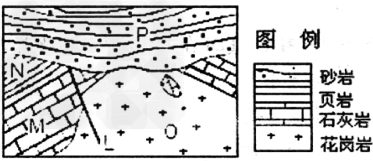问题
单项选择题
| 市场“盲点”使消费者经常陷入困境。在一些大商场、大超市,各类商品不可谓不多,各种服务行业也日趋“五花八门”,但是现实生活中,几乎每一位消费者都有为找一种特殊服务或是一种急需商品“问破嘴皮儿”“跑断腿儿”却仍寻觅不到,只能干着急的时候。 同时,这些“盲点”其实也正是市场的亮点。现在不少城市人在闲暇时,都有回归山野,贴近自然的愿望,而山野旅游专用的露宿睡袋、简易帐篷、远足背袋等装备却难觅踪影,偶尔有商家出售,其价格也足以令大多数人却步。随着生活节奏的加快和对健康的重视,消费者呼唤营养全面的快捷食品,而这些方面的食品品种却十分单调。加速变化时代“催生”了房屋设计、监理,方便食品等新要求,无奈此类需求因相关产业发展滞缓,形成产业“盲点”而无法得到满足。 如今的厂商都为寻找新的商机而挖空心思,不想在身后留下一批“有点”产业。有关专家认为,这些“盲点”产业中,一部分是由于新需求尚未引起广泛关注而造成的。另有一部分,像老年产业刚好是被长期忽视的。厂商们普遍认为“长期漠视”的都是生产利润较小的产业,他们不愿倾力经营。比如,老年服装利润比时装要小得多。但专家认为,我国商业正在向“薄利时代”过渡,“不以利小而不为”应该成为有眼光厂商的经营理念。 新需求[ ]新产业的快速跟进,长期被忽视的产业更需要工商界重新认识,这些产业“盲点”和“空白”若能及早被发现、填补,消费者就会痛快地“掏腰包”,厂商也可以如愿赢得大市场。 |
下列说法与原文意思不符的一项是( )。
A.尽管今天厂商都为寻找新的商机而挖空心思,然而市场上却出现了许多“盲点”,即市场的空白点,这些“盲点”,部分是销售利润和服务收费较少的行业
B.形成市场盲点的原因,其一是由于消费者新的需求尚未引起广泛的关注,其二是某些产业像老年产业长期被厂家和市场所漠视
C.只要厂家和商家转变观念,对市场“盲点”重新认识,就能把“盲点”变成“亮点”,培育出市场的新商机
D.专家认为,市场“盲点”孕育商机;消费者也感到,我国商业正在向“薄利多销”的时代过渡;商家厂家也认识到了“不以利小而不为”的道理
答案
参考答案:D
解析: 根据第三段最后一句可知,“薄利时代”、“不以利小而不为”不是消费者和商家的观点,而是专家的观点。故选D。

